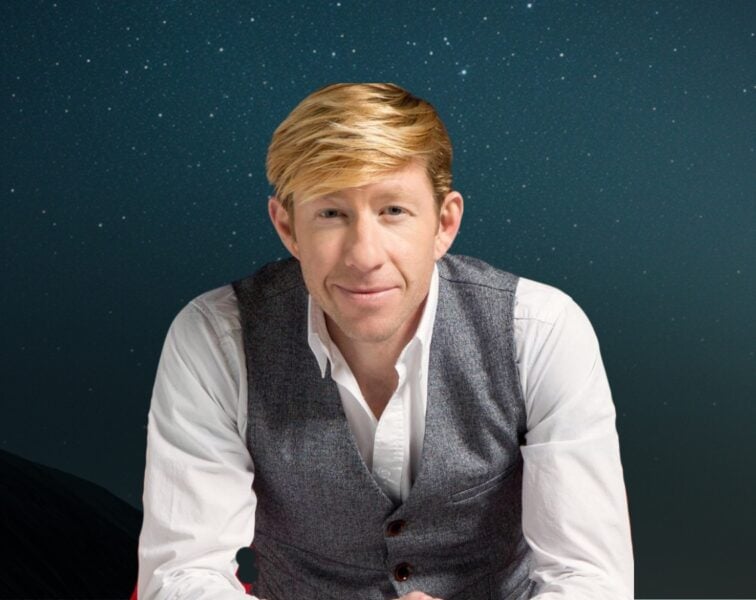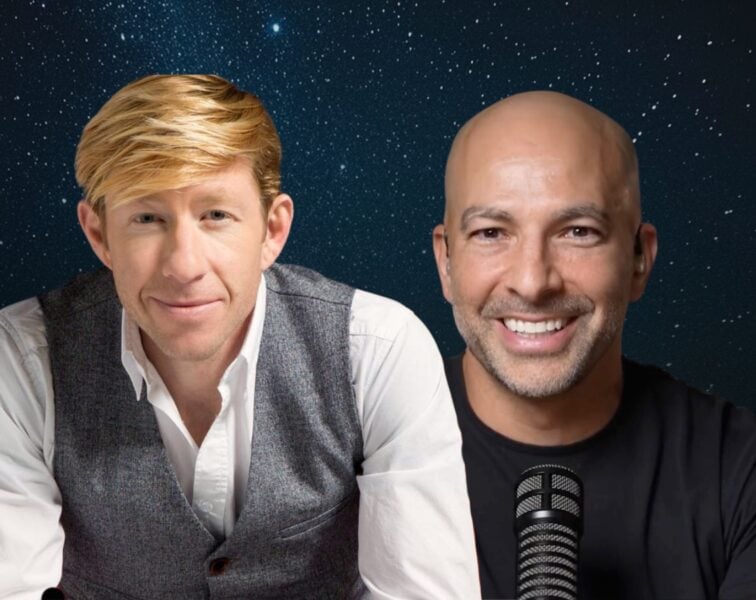Check out more content with sleep expert, Matthew Walker, Ph.D.:
- (April 1, 2019) Part I of III: Dangers of poor sleep, Alzheimer’s risk, mental health, and memory
- (April 8, 2019) Part II of III: Heart disease, cancer, sexual function, and sleep disruption
- (April 15, 2019) Part III of III: The penetrating effects of poor sleep from metabolism to genetics
- (June 17, 2019) AMA #1: Strategies for sleeping more and sleeping better
- (October 28, 2019) AMA #2: short sleep mutants, optimal sleep environment, & sleep apnea
- (August 31, 2020) Sleep & Covid-19: Sleep and immune function, chronotypes, and hygiene tips
- (September 7, 2020) AMA #3: Fasting, gut health, blue light, caffeine, REM sleep, and more
In this special episode, Matthew Walker returns for his third AMA episode to provide his expert insight into numerous sleep-related questions directly from listeners. He explains how he adjusted his hypotheses on topics like blue light and caffeine, and why he is more bullish on the importance of REM sleep. Matt also answers questions about sleep wearables, how fasting affects sleep, how sleep deprivation impacts gut health, and magnesium as a sleep aid. Finally, Matt reveals what he believes is the next evolution in sleep science and technology.
If you’re a subscriber, you can now listen to this full episode on your private RSS feed or on our website at the show notes page for this episode. If you are not a subscriber, you can learn more about the subscriber benefits here.
We discuss:
- Matt’s framework for changing his mind when faced with new information [1:30];
- Blue light—How Matt shifted his thinking [5:45];
- Caffeine—How Matt has adjusted his hypothesis [12:00];
- REM sleep—Why Matt is more bullish on the importance of dream sleep [16:30];
- How to increase REM sleep [27:30];
- Sleep tracking wearables—criteria for evaluation, and why Matthew favors Oura [35:00];
- Does the electromagnetic force of devices have any impact on sleep? [40:15];
- The relationship between fasting and sleep [46:15];
- Restless leg syndrome [58:10];
- Magnesium supplementation as a sleep aid [1:03:00];
- The relationship between sleep deprivation and gut health [1:08:30];
- The next evolution in sleep science and technology [1:16:30];
- Questions Matt would like to explore if money was no issue [1:24:15]; and
- More.
Get Peter’s expertise in your inbox 100% free.
Sign up to receive An Introductory Guide to Longevity by Peter Attia, weekly longevity-focused articles, and new podcast announcements.
Matthew’s framework for changing his mind when faced with new information [1:30]
Special episode of The Drive where Peter discussed things he has changed his mind about: Strong Convictions, Loosely Held
How does Matthew think about changing in mind in the presence of new information?
Three buckets:
- Evidence that’s coming in that’s helping reinforce a belief making Matt more bullish
- Beliefs which Matthew holds presented with new evidence that doesn’t change his mind but it might add a new construct in that equation
- Contradiction: New evidence against his current hypothesis resulting in a rejection that hypothesis.
In summary:
- New information leads to his beliefs becoming
- i) Stronger,
- ii) more nuanced, or
- iii) rejected
Peter’s rant about science—
- His pet peeve: When the media/press presents scientific information as anything but probabilistic
- Most people don’t have the opportunity to be educated scientifically, but those who are start to realize that it’s really all probabilistic
- Data is very messy and therefore the best you can do when an experiment is concluded is increase your confidence in the probability of something being true or being false
- “There’s no proving anything in science.”
Blue light—How Matt shifted his thinking [5:45]
Overall: Matt says the things he’s most changed his mind about recently is his understanding about the impact of blue light on sleep ⇒ “I’ve actually down-regulated my belief in the effects of blue light.”
In the book, for example, he wrote about study from Harvard (which he still thinks is valid)—
- Participants either read on an iPad or a book under dim light for an hour
- It showed that the iPad had this detrimental effect on sleep by delaying the release of melatonin
- That caused a reduction in REM sleep
- The even concluded that the effect lasted a couple days after stopping the iPad reading at night
Research by Michael Gradisar from Flinders University pushed back on that conclusion—
- This study suggested it’s that these devices ACTIVATE us, and that activation masks/mutes our sleepiness so we go to bed later and lose sleep
- It’s less about the blue light, and more about the devices ability to increase alertness/physiological arousal in the brain
- In other words, you were sleepy all along, but these devices hit a mute button on the sleepiness
In summary:
- The studies implicating blue light as especially bad for sleep were principally looking at melatonin
- In other words, they were simply saying, How does it affect your melatonin?
- But the next question should be, How does it then affect as a consequence of that change in melatonin?
- And it turns out that the melatonin piece may not be the principal reason why sleep is affected when you consider the brain arousal component
- “It really sort of made me shift my belief system.”
The next evolution of the science will be to do two types of studies—
- Firstly, a study where you use the same amount of light exposure but use different types of lights (type of light being the variable)
- Secondly, studies where the type of light actually becomes the constant stimulus where you maintain the same light exposure
- But in one condition you’re doing something cognitively activating
- And in the other condition you’re getting hit with the same light but not doing anything cognitively activating
Caffeine—How Matt has adjusted his hypothesis [12:00]
Overall: Matt has added more construct to his beliefs around caffeine, sleep, and disease risk
{end of show notes preview}
Would you like access to extensive show notes and references for this podcast (and more)?
Check out this post to see an example of what the substantial show notes look like. Become a member today to get access.

Matthew Walker, Ph.D.
Dr. Walker earned his degree in neuroscience from Nottingham University, UK, and his PhD in neurophysiology from the Medical Research Council, London, UK. He subsequently became a Professor of Psychiatry at Harvard Medical School, USA. Currently, he is Professor of Neuroscience and Psychology at the University of California, Berkeley, USA. He is also the founder and director of the Center for Human Sleep Science.
Dr. Walker’s research examines the impact of sleep on human health and disease. He has received numerous funding awards from the National Science Foundation and the National Institutes of Health, and is a Kavli Fellow of the National Academy of Sciences.
Dr. Walker is the author of the International Bestseller, Why We Sleep. It has a singular goal: to reunite humanity with sleep.
In addition, Dr. Walker is an internationally recognized speaker, a successful entrepreneur, and a Sleep Scientist for Google.
[sleepdiplomat.com]
Twitter: @sleepdiplomat
Center for Human Sleep Science: https://www.humansleepscience.com/
Matthew’s publications: https://www.humansleepscience.com/p-u-b-l-i-c-a-t-i-o-n-s



